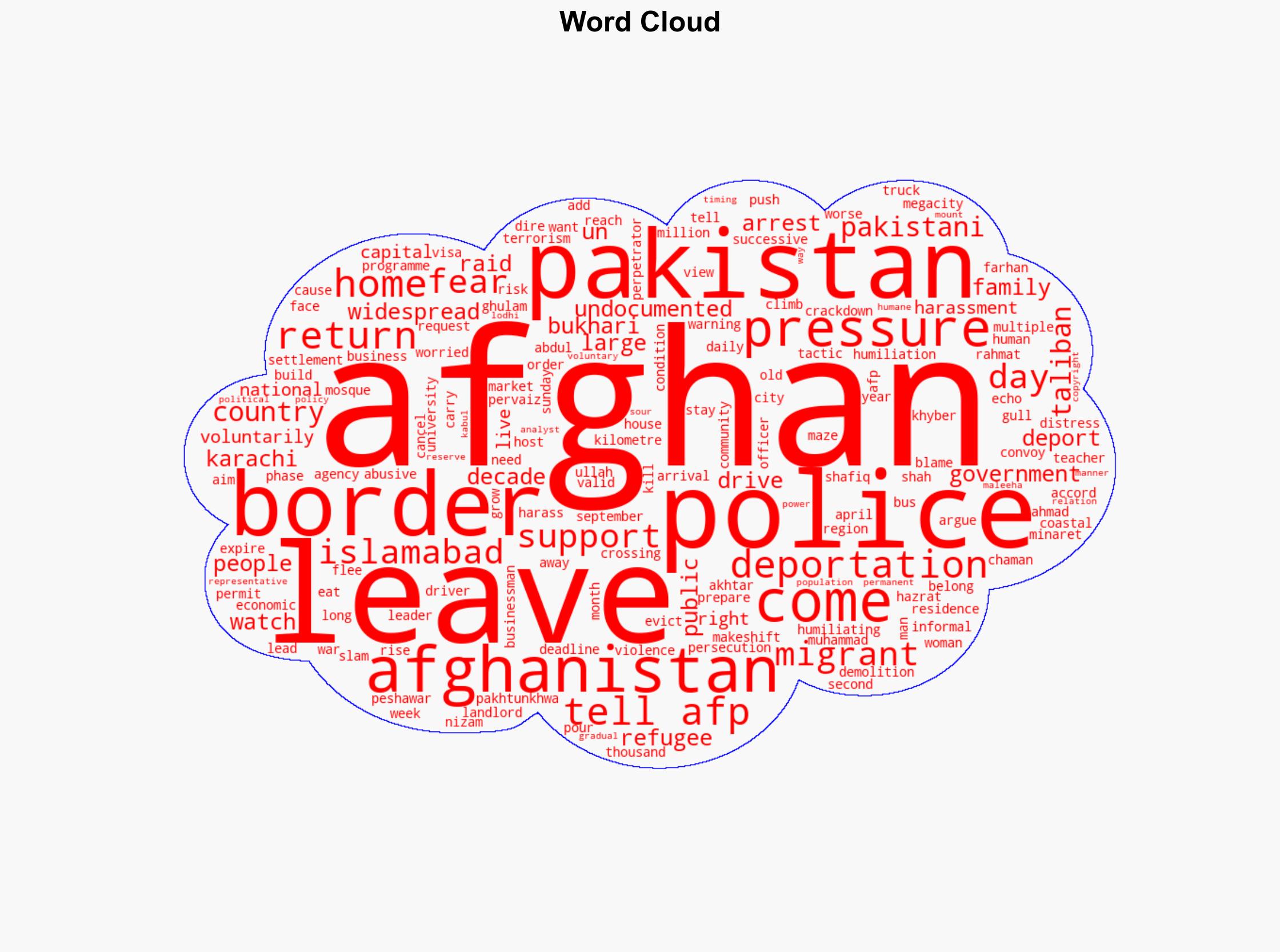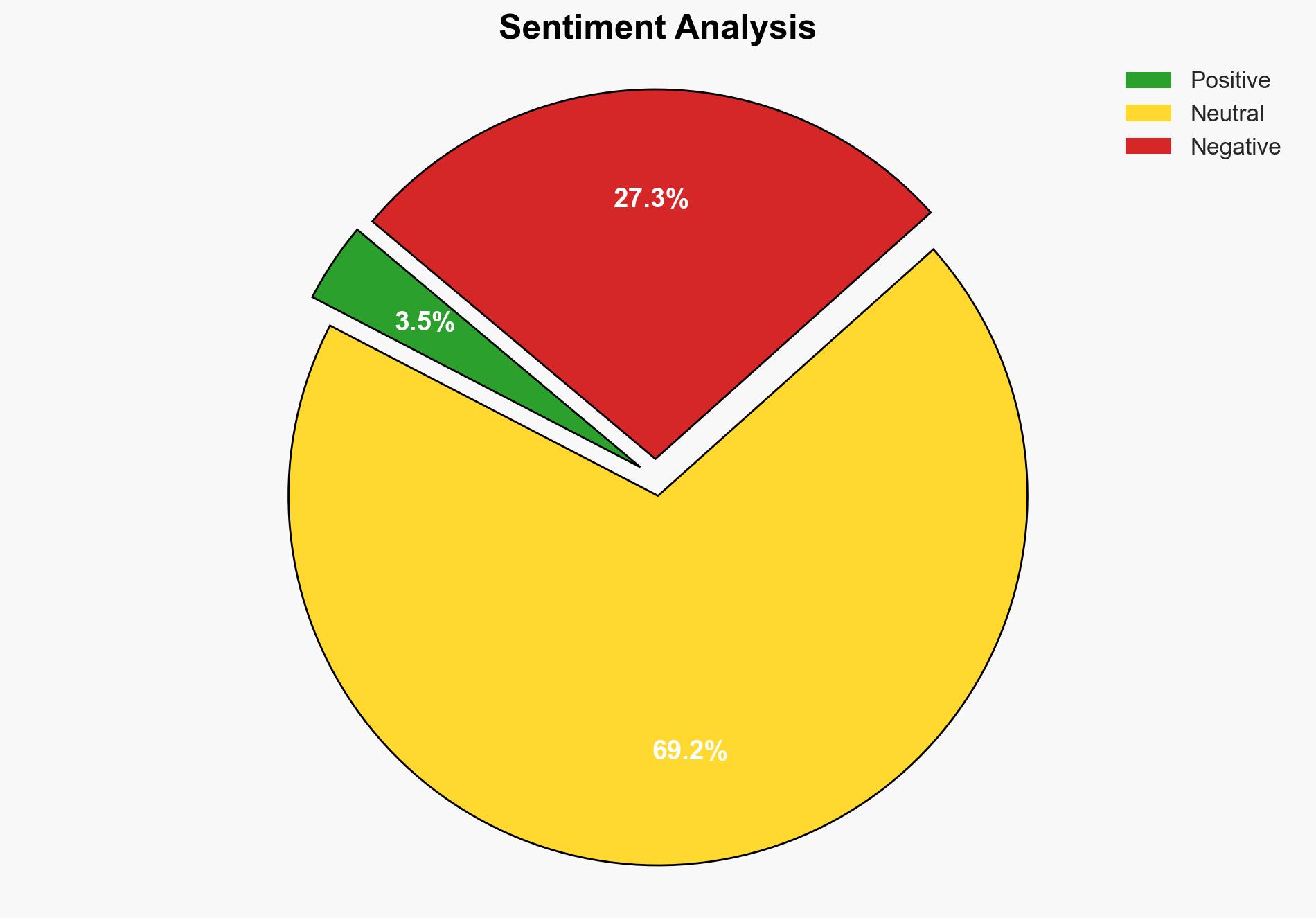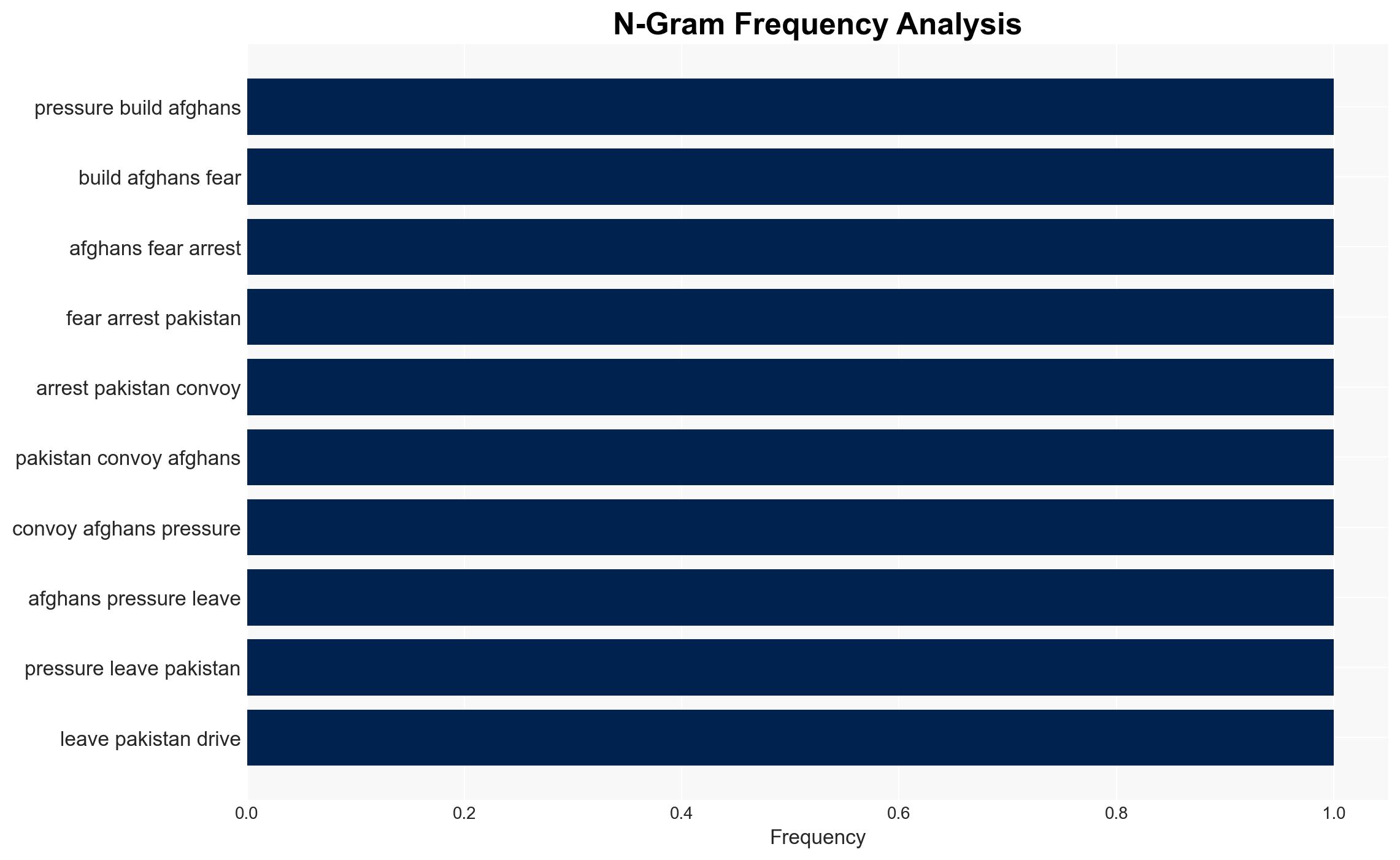Pressure Builds On Afghans Fearing Arrest In Pakistan – International Business Times
Published on: 2025-04-09
Intelligence Report: Pressure Builds On Afghans Fearing Arrest In Pakistan – International Business Times
1. BLUF (Bottom Line Up Front)
The Pakistani government’s intensified deportation efforts are creating significant pressure on Afghan migrants, leading to widespread fear and uncertainty. This situation is exacerbating tensions between Pakistan and Afghanistan, with potential implications for regional stability and humanitarian conditions. Immediate attention is required to address the humanitarian concerns and diplomatic tensions arising from this policy.
2. Detailed Analysis
The following structured analytic techniques have been applied for this analysis:
General Analysis
The Pakistani government’s crackdown on undocumented Afghan migrants is part of a broader strategy to manage internal security concerns. The policy has led to increased fear among Afghans residing in Pakistan, with reports of police raids and harassment. The deportation drive is perceived as a response to public sentiment linking Afghan migrants to security issues, despite the lack of direct evidence. This policy could strain Pakistan’s relations with Afghanistan, especially given the Taliban’s return to power.
3. Implications and Strategic Risks
The deportation policy poses several risks:
- Humanitarian Risk: The forced return of Afghans could lead to humanitarian crises, as many may face persecution or dire economic conditions in Afghanistan.
- Regional Stability: The policy could exacerbate tensions between Pakistan and Afghanistan, potentially destabilizing the region.
- Security Concerns: The perceived association of Afghan migrants with terrorism could lead to increased xenophobia and social unrest within Pakistan.
- Economic Impact: The deportation of a large migrant workforce could have negative economic repercussions for sectors reliant on Afghan labor.
4. Recommendations and Outlook
Recommendations:
- Engage in diplomatic dialogue with Afghan authorities to ensure a coordinated and humane approach to migration management.
- Implement measures to protect the rights of migrants and prevent abuses during deportation processes.
- Enhance public communication strategies to address misconceptions linking migrants to security threats.
Outlook:
Best-case Scenario: Diplomatic efforts lead to a mutually agreed framework for managing Afghan migrants, reducing tensions and improving humanitarian outcomes.
Worst-case Scenario: Continued deportations without coordination exacerbate regional tensions and lead to humanitarian crises.
Most Likely Scenario: Incremental improvements in policy implementation with ongoing challenges in balancing security concerns and humanitarian needs.
5. Key Individuals and Entities
The report mentions several individuals who have provided insights into the situation:
- Rahmat Ullah
- Nizam Gull
- Abdul Shah Bukhari
- Ghulam Hazrat
- Farhan Ahmad
- Pervaiz Akhtar
- Muhammad Shafiq
- Maleeha Lodhi
These individuals provide perspectives on the impact of the deportation policy and its broader implications.




